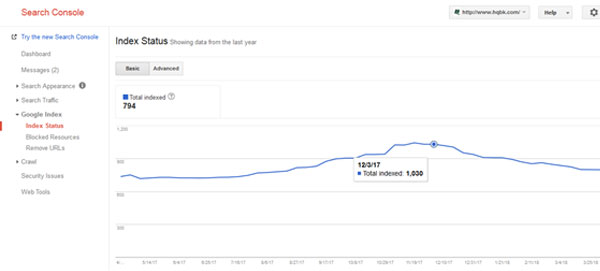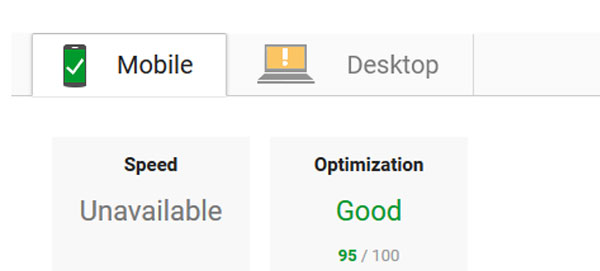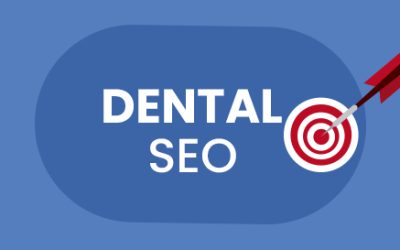How significant is technical SEO for medical websites in this smartphone age? An integral part of healthcare website design, technical SEO involves designing your website to be intuitive for your targeted visitors as well as search engine algorithms. It signifies the efforts taken by a webmaster to ensure the site is compatible with search engine guidelines, and can be indexed and ranked for targeted keyword and key phrase searches. Provided your site has a good structure and high-quality website development, you will enjoy higher rankings.The importance of technical search engine optimization is well described in Econsultancy’s SEO Best Practice Guide. Technical SEO is compared to the engine of a train – whatever be the appearance of the carriages (on-page content), if the engine doesn’t function properly, nobody will ride the train.
Many people think that SEO is all about optimizing the content. But that is not enough, technical SEO is vital to make the content more visible and accessible to your customers. A good SEO strategy includes on-page, off-page, and technical SEO factors. However, a number of websites have issues with technical SEO. Therefore it is necessary to perform an in-depth technical SEO audit on your website to ensure that search engines are able to crawl and index the pages easily.
Technical SEO strategies include optimization of the website to load faster, fixing broken links, changing the architecture and designing the website toprovide a better user experience.
Focusing on Technical SEO
Today, customers are becoming more and more selective and also look for the best user experience. So, making a first good impression is important for any website and with proper SEO efforts, your website can gain optimum visibility in search page results. Search engines are also getting better at crawling and indexing but they are not perfect. Sometimes they have a hard time figuring out what a website is all about or what the searchers want. Quality content alone may not work anymore. Good website content should be complemented by a strong technical SEO foundation.
So, what are the top technical SEO considerations when creating and maintaining your medical website?
- Excellent architecture: Your website architecture must be able to keep up with your growing website. The pages should not be lying too deep within the site. This means you have to plan a “horizontal” site that will allow search engines to easily and regularly crawl, cache, and index your pages. If you sell healthcare products, categorization is a major part of site architecture – this involves dividing a catalogue of products into categories and assigning URLs.
- Performance:
- Site speed: The ideal time for loading pages is 2 seconds.Other page speed metrics worth tracking and optimizing are:
First byte
First paint
First meaningful paint
Page load
DOM content load
Interactive - Superfluous codes:Some websites will have unnecessary long-forgotten codes that still exist. You can review and remove any unused CSS and JavaScript codeswith Chrome Developer Tools.
- Implementing AMP:Consider implementing AMP (Accelerated mobile pages) and responsive design on the website.
- Responsive Design: It makes user experience better on all devices so doing it for your website makes so much sense inthis mobile-first era. Test your website on different devices so that any issues that negatively affectthe user experience can be identified and rectified.
- Site speed: The ideal time for loading pages is 2 seconds.Other page speed metrics worth tracking and optimizing are:
- Crawlability and Indexation: Crawl budget is the time, money and resources that Google is willing to spend on a website. There are many factors that can negatively affect crawl budget but mainly they are caused due to “low-value-add” URLs. Examples of these are on-site duplicate content, large spaces, facets, parameters, and session identifiers.
Monitor the Index coverage report and crawl stats in the new Google Search Console to spot and resolve indexing and crawling issues. Keep a server log file to analyze what Googlebot is doing on the site and what aspects should be improved. Crawl tools like Screaming Frog and DeepCrawl are useful in this regard.
Making Technical SEO work
Google is now rolling out the mobile first index and the modern web doesn’t use the keyboard always. It is important optimize for device agnostic information and ask how easy is it to extract content bysearch engines. Ranking for featured snippets is a good way to know whether the content passes the mark as they indicate that Google is successfully extracting data from your site. Using semantic mark-up makes it easier for Google to interpret the content and figure out what they can do with it.
Great content alone is not always helpful for page ranking but efficiently implemented technical SEO helps search engines to find the page. Many times great content liesundiscovered because of poor SEO techniques. So to gain more traffic to your website,you need to make sure that your content is found. Following are some tips to make technical SEO work:
- Use of Index coverage report in Google Search Console: Google Search Console is a useful webmaster tool for maximizing the visibility of content. Search Console’s new report provides webmasters new depth of analysis by displaying reports on pages that have been indexed successfully, pages that were not indexed because of an error, and pages that have been excluded from indexation. The report can be also used to track down the reasons that pages aren’t being indexed. It allows to make necessary changes to get your content discovered and avoid similar problems in the future.
- You can also perform meaningful analysis by combining data from Google Analytics. Determine the ideal length for pages and Meta tags. You can use business intelligence tools like Tableau tovisualize thedata andextract valuable insights. Run an SEO spider to get the relevant metadata and then upload thedata to the business intelligence toolto create visualization.
- Canonical tags: This is the ideal way to consolidate duplicate content. If you need identical or nearly identical pages, then canonical tags will indicate to search engines which URL is the main page to consider. However, incorrectly applied canonical tagswill remove valuable pages from the index.If a page is not truly a duplicate, but its canonical tag points to another page with different content, the original page will be dropped from the index and will not draw organic traffic.
- Page speed is important for getting your content noticed and it hugely affects user bounce rates. If page speed is slow, then there are high chances that users will leave the page. So keep the users engaged with high page speed. To speed up the site, many companies use (CDN) Content Delivery Network. Usually, static resources arecached on a third party network of server nodes to ensure content is delivered quickly. Dynamic HTML content, on the other hand, such as shopping carts and individuals user profiles, often remains hosted on company servers, which often tend to be slower than a CDN.


You can make technical SEO work with efficient support from a healthcare SEO company. SEO professionals, developers, and designers will work as a team to ensure that you have an attractive and functional website. Though technical SEO alone is not enough to have a successful website, effective technical SEO will facilitate everything else.




